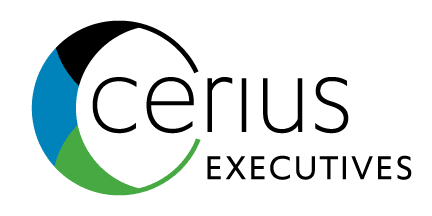Tips for Writing the Perfect Profile of a Top-Level Independent Executive

Contributed by Kristen McAlister
As a top-level independent executive with an extensive career, writing one’s profile or resume can be challenging. The challenge increases for independent executives and executive consultants because of the variety and volume of engagements one has over time.
The Top-Level Independent Executive Cannot Lose Sight of What They Do Best
What is the right information to include in a profile? How much detail should be included? How far back in time should your resume or online profile cover? What often gets lost in your multiple resumes, bios and online profiles is what you do best and what you love to do. (Ideally these are the same.)
At Cerius we work with a large number of executives on a daily basis. We have a lengthy screening process in order to get to know the executive, what they have done, what they have accomplished and what they do best. It takes a lot of time to truly understand, “What does this independent executive do best?”
What makes this process so challenging is that as an executive, you have had a long career encompassing a variety of positions, assignments and projects where you have had an opportunity to learn and accomplish quite a bit. In some cases, you were the jack of all trades and others you were singularly focused in a specific area. You are told time and time again to just put your highlights on your resume and keep it to no more than three, preferably two pages. Given all of this, we have seen a dichotomy in the marketplace when it comes to executive resumes and profiles. I’ll provide some examples.
Our Advice to Senior Level Executives:
1. Emphasize your expertise, not your general knowledge.
What are you the best at vs. what have you done once before in your career. It is common to list out all of the functional areas you have played an executive role in as potential opportunities you can fill. Instead, focus on what within their roles are you the best at? Rather than listing CEO, Finance, Operations and Sales, all of which you likely could step in and do, emphasize the expertise you have within those roles. For example, sales team development and training, cash management, M&A due diligence, investor relations or turn around crisis management. Make sure you can be a panel speaker on that topic, write papers and given presentations on best practices.
2. Provide the details where it matters most.
Having been responsible for HR as a CFO does not mean you should list HR Executive in the roles you can step into. Only list those you have hands-on experience with and provide the details of what you accomplished.
3. List the accomplishments and results for the companies due to your efforts.
Rather than reiterating the job description, key in on what was accomplished during your tenure and how the company benefited from it.
4. What makes a top-level independent executive isn’t what makes a successful one.
You will be more successful stepping into roles that lend to your core competencies and areas of expertise.
Companies want an executive who can show they have solved this problem or done this job a number of times and bring those experiences and lessons learned with them. One of the most dangerous statements is “I’m a quick learner, I can figure out almost anything.” Top level executives are brought in to show the team how it is done, not to figure things out in the process. By narrowing down your expertise you will expand your opportunities. By including all of your experiences you will show that you have done it before and can show them how.


